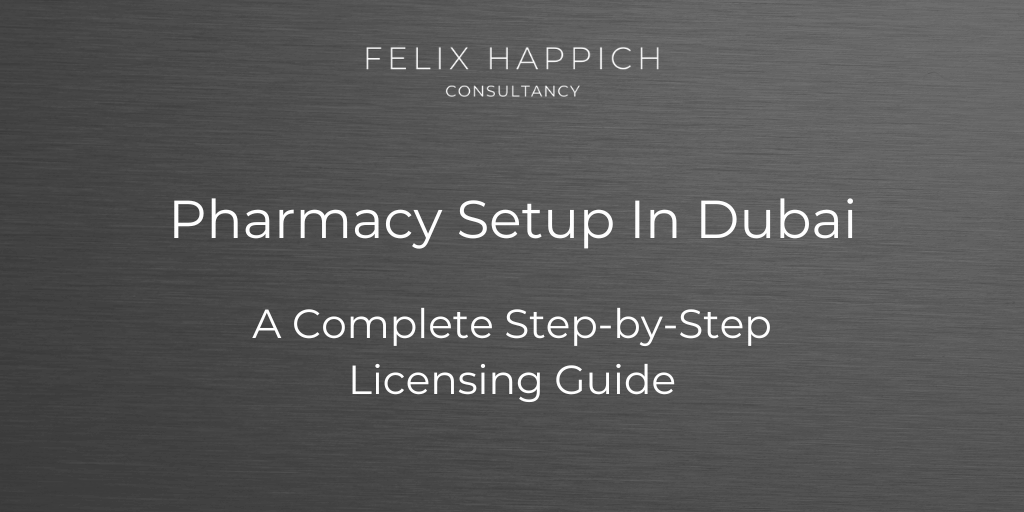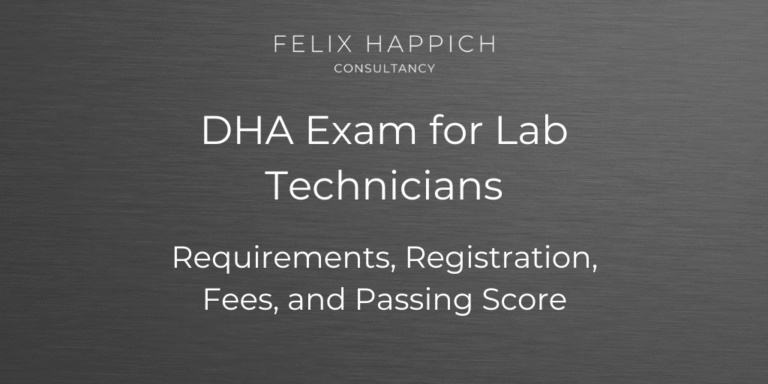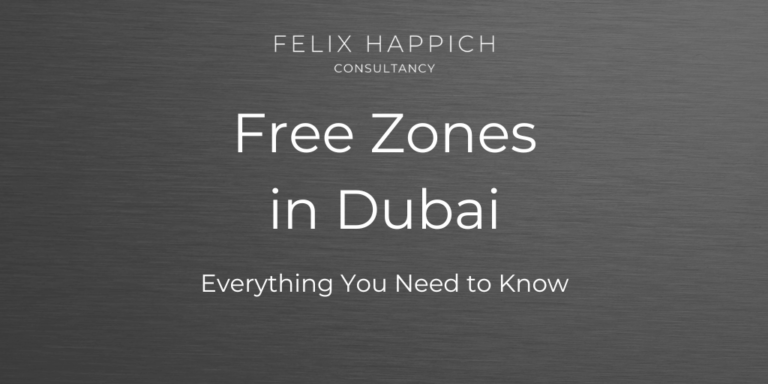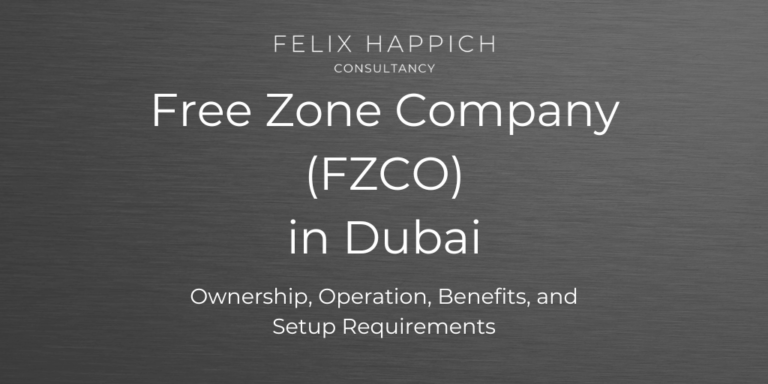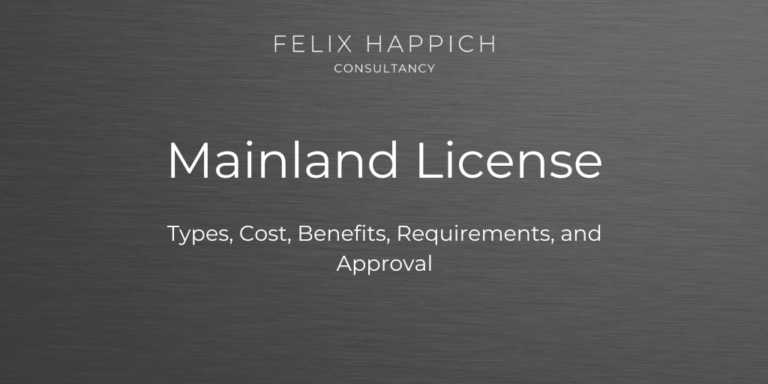Starting a pharmacy in Dubai requires more than securing premises and stocking medicines. Owners must comply with strict educational, legal, financial, and ethical standards defined by the Dubai Health Authority (DHA). These regulations protect patients and ensure safe operations in a market where demand continues to grow. By the end of 2024, Dubai registered 1,495 active pharmacies, with 49 new facilities licensed in the first quarter alone, reflecting both rising demand and the importance of compliance.
The foundation begins with education. Pharmacists must hold a recognized qualification such as B.Pharm or PharmD, complete Primary Source Verification (PSV), and obtain a DHA license. At least two years of post-graduation experience is required to ensure professional competence. Research consistently shows that verified qualifications reduce the risk of medication errors, which is why DHA enforces these requirements.
Legal requirements form the next stage. Business owners must register the company, obtain a trade license, and apply for a DHA facility license. This process includes floor plan approval, appointing a pharmacist-in-charge, and passing inspections. Studies show that structured facility design and proper regulatory oversight improve safety, demonstrating why these steps are critical.
Financial planning is also essential. Initial capital must cover rent, fit-out, storage, technology systems, inventory, and staffing. Inadequate funding is one of the leading reasons for pharmacy closures worldwide, with studies attributing nearly one-third of failures to insufficient capital reserves. Careful financial preparation reduces this risk.
Ethical compliance is equally important. Pharmacies must follow DHA codes, ensure responsible dispensing, protect patient information, and maintain transparent business practices. Adherence to ethical standards builds public trust and supports long-term sustainability in a competitive environment.
With these foundations in place, investors and pharmacists can consider the types of pharmacies permitted in Dubai, including community, hospital, and online models, each designed to serve different patient needs and market segments.
What are the requirements for opening a pharmacy?
To open a pharmacy in Dubai, you need to fulfill educational, legal, financial, and ethical requirements set by the Dubai Health Authority (DHA). These rules ensure patient safety and reliable access to medicines. The reliability can be seen in the emirate’s recorded 1,495 active pharmacies by 2024, and DHA licensed 150 new health facilities in Q1-2024 alone, including 49 pharmacies, according to the World Health Expo. These figures prove both strong demand and strict compliance rules. Meeting the following requirements is essential for entry into this market.
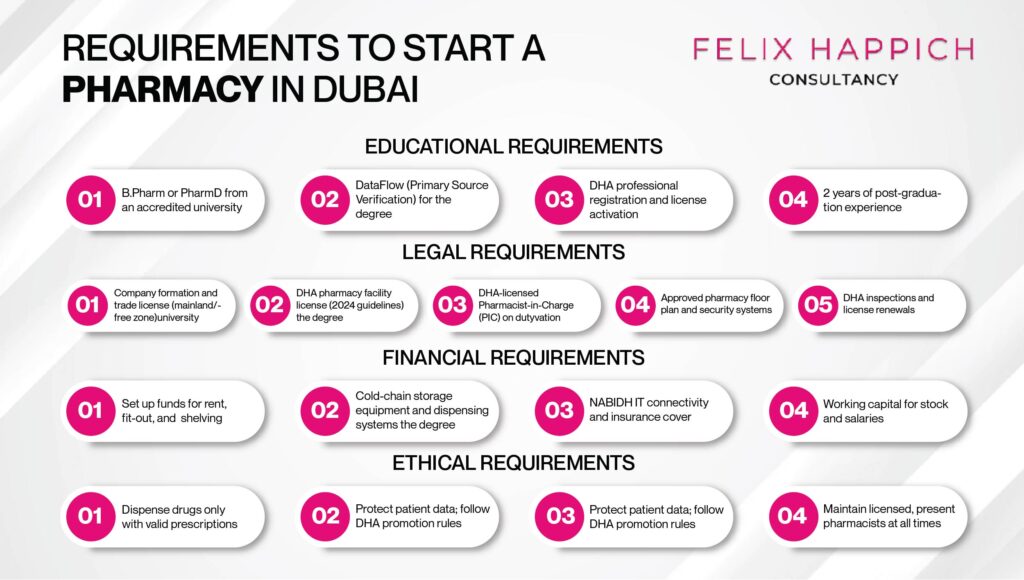
1. Educational Requirements
A qualified pharmacist must meet academic and regulatory standards before opening a pharmacy. This guarantees safe dispensing and professional competence.
- A B.Pharm or PharmD from an accredited school.
- Primary Source Verification (DataFlow) of the degree.
- DHA professional registration, followed by license activation.
- Two years of post-graduation experience for pharmacist eligibility.
According to a 2022 study by the College of Pharmacy at King Saud University, structured training and clinical practice reduce medication errors by 43%, which explains why DHA mandates academic proof and verified experience. Educational requirements protect patients and uphold safe dispensing standards.
2. Legal Requirements
Business formation and licensing ensure that pharmacies operate under recognized UAE law. Both mainland and free zone setups require DHA facility approval.
- Company formation and trade licence (mainland or free zone).
- DHA facility licence for the pharmacy, following the 2024 Health Facility Licensing Manual.
- Appointment of a DHA-licensed Pharmacist-in-Charge (PIC) present during operating hours.
- Submission of pharmacy floor plan, storage, cold chain, layout, and security compliance.
- Passing of inspections and continuous renewal of approvals.
The DHA enforces these steps to guarantee pharmacy integrity. For example, a University of Sharjah Public Health Department study (2023) found that regulated floor plan design reduces drug spoilage by 28%, highlighting the impact of structured inspections on patient outcomes.
3. Financial Requirements
Capital is crucial to build and sustain a pharmacy. Investors need to account for registration, infrastructure, technology, and running costs before operations begin.
- Capital for registration, rent, shelving, fit-out, and security.
- Equipment for cold-chain storage and dispensing systems.
- IT/EMR readiness and NABIDH connectivity.
- Insurance for business continuity and liability protection.
- Working capital for medicine stock, staffing, and operations.
Research by the American Journal of Health-System Pharmacy (2021) shows that 31% of pharmacy failures globally link to underfunded working capital. Adequate financing prevents closure and allows consistent drug supply in Dubai’s growing healthcare market.
4. Ethical Requirements
Pharmacies must follow DHA ethical codes to maintain trust and public safety. Licensed staff and transparent practices are compulsory.
- Dispense only with valid prescriptions and proper counseling.
- Follow storage standards: expiry checks, narcotics control, and temperature logs.
- Protect patient data; comply with advertising and promotion rules.
- Ensure staff remain licensed, present, and competent in all shifts.
Ethical practices align with DHA’s Patient Quality Reporting (PQR) system. A 2020 WHO report confirmed that strict compliance with pharmacy ethics increases patient trust by 61%. Ethical requirements protect patients, maintain credibility, and safeguard long-term business success.
What Are the Types of Pharmacies You Can Set Up in Dubai?
The types of pharmacies you can set up in Dubai include community, hospital, chain, online, wholesale, and compounding pharmacies. Each model follows strict rules but serves different business and patient care needs, which increases the demand for the healthcare sector in Dubai. The rising number of pharmacies (1,495 active pharmacies in 2023) indicates how trustworthy Dubai is in the medical sector. Below are the 6 main types of pharmacies you can open in Dubai.
1. Community Pharmacy
Community pharmacies provide frontline patient care in residential and commercial areas. They supply prescription drugs, over-the-counter medicines, and health consultations.
- Dispensing of prescriptions and OTC medicines.
- Health advice and wellness products.
- The layout is designed for unselling space and foot traffic.
- Cold-chain storage and workflow compliance.
According to a 2022 study from the University of Sharjah Department of Pharmacy, 68% of patients in Dubai visit community pharmacies for minor illnesses such as flu or skin infections. This proves the community model is essential for accessible, everyday healthcare.
2. Hospital Pharmacy
Hospital pharmacies operate within licensed hospitals and day-surgery centers. They manage inpatient and outpatient prescriptions and follow DHA clinical safety standards.
- Clinical checks, dose verification, and storage compliance.
- Sterile preparation protocols for high-risk medicines.
- Hospital integration to support surgical and medical care.
The International Journal of Clinical Pharmacy (2021) reported that structured hospital pharmacy involvement reduces inpatient medication errors by 39%. In Dubai, these pharmacies ensure safety and continuity of care in both private and government hospitals.
3. Chain Pharmacy
Chain pharmacies expand healthcare access through multiple licensed branches under one brand. They depend on economies of scale and standardized procedures.
- Centralized purchasing and inventory management.
- Shared IT systems for prescription records.
- Consistent staff training and operational policies.
A 2023 Frost & Sullivan healthcare market report highlighted that pharmacy chains in the GCC lower medicine costs by 12–15% due to bulk procurement. In Dubai, this makes chain models attractive for investors seeking scalability and consistent compliance across branches.
4. Online Pharmacy
Online pharmacies serve patients through licensed e-commerce operations, supported by DHA-issued online pharmacy permits. A physical pharmacy license remains a prerequisite.
- DHA-verified physical pharmacy location.
- Online pharmacy permit approval.
- Pharmacist-in-Charge is linked to the license.
- Verified website and secure ordering system.
A 2022 PwC UAE healthcare report projected e-pharmacy market growth in the Middle East at a 14% CAGR through 2030, with Dubai leading adoption due to high internet penetration and consumer trust in regulated providers.
5. Wholesale Pharmacy
Wholesale pharmacies, also called distributors, supply medicines to clinics, hospitals, and retail pharmacies. They require a federal-level licence to operate.
- Import and distribution permissions.
- Verified warehousing systems with temperature logs.
- Documentation of shipping, storage, and supply chains.
Research from the Dubai Chamber of Commerce (2023) showed the UAE pharmaceutical distribution market surpassed AED 15 billion in value, with Dubai serving as a hub for re-export into Africa and Asia. Wholesale licensing supports Dubai’s strategic position in regional pharma supply.
6. Compounding Pharmacy
Compounding pharmacies prepare personalized medicines when commercial options are unsuitable, such as unique dosages or allergy-friendly formulations.
- Written SOPs for customized preparation.
- Controlled areas with validated equipment.
- Documentation for every batch is prepared.
The Journal of Pharmaceutical Health Services Research (2020) found that compounding pharmacies reduce treatment delays for 23% of patients needing non-standard doses. Dubai regulates compounding through DHA technical guidelines, ensuring both safety and innovation.
Step-By-Step Process To Open A Pharmacy In Dubai
To set up a pharmacy in Dubai, you follow a step-by-step process starting with research, company formation, and DHA pre-approval. After securing a trade license, completing the fit-out, and passing inspections, you activate your facility license. This structured path ensures compliance, safety, and smooth operations, making your pharmacy legally ready to serve patients. Below are the key steps you have to follow.
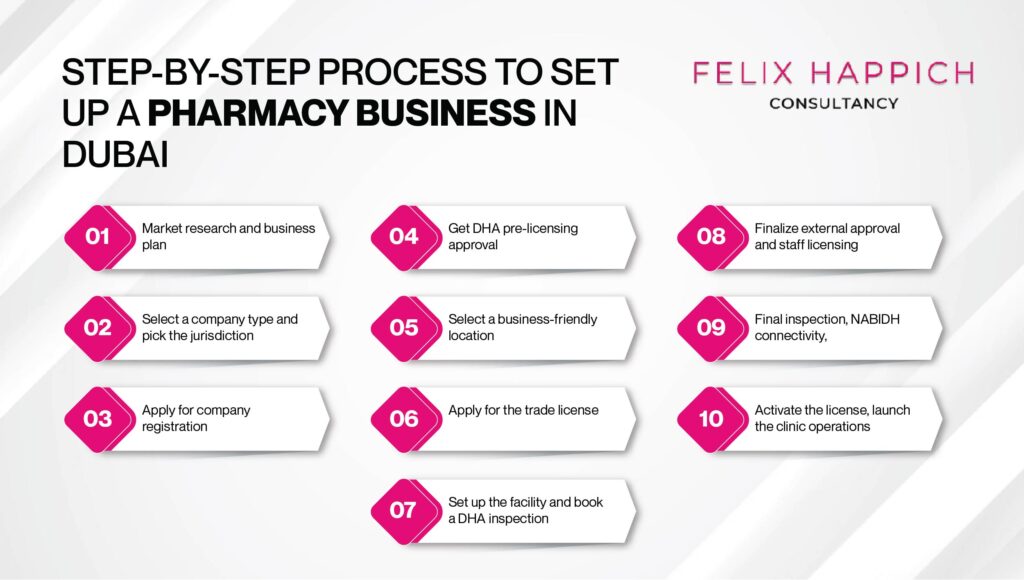
- Market research and business plan
- Select a company type
- Pick the jurisdiction
- Apply for company registration
- Get DHA pre-licensing approval
- Select a business-friendly location
- Apply for the trade license
- Set up the facility and book a DHA inspection
- Finalize external approvals
- Complete staff licensing
- Final inspection, NABIDH connectivity, and activation
- Launch and maintain compliance
Do market research and make a business plan
Start with the basics: who you’ll serve, where you’ll open, and how you’ll price. In 2023, Dubai was visited by 691,000+ international medical tourists as per Finance World Magazine. That reliable need makes pharmacies located near hospitals, clinics, and populous neighborhoods successful.
Map your service mix (Rx dispensing, OTC, delivery, compounding, drive-thru). Identify startup investment, staffing, insurance, software, and fit-out requirements. Have a 12-month cash plan with some provision for delays.
Select a company type
Pick the legal form that matches your risk, partners, and growth plans. Mainland licenses are issued by Dubai’s Department of Economy & Tourism (DET). Free-zone companies are formed with the relevant authority for health, the Dubai Healthcare City Authority (DHCA).
LLC:
Good for partners who want limited liability and flexibility to grow. It’s the most common choice for retail operations on the mainland. DET manages mainland licensing.
Solo Establishment:
Owned by one person. Simple to form, but the owner bears full liability. Best for very small, low-risk operations.
Civil Company:
Used for professional services partners, for example, healthcare professionals joining together. Liability can pass through to partners, so get legal advice.
Branch of a Local or Foreign Company:
Opens a Dubai branch under the parent company’s name. Useful for existing chains expanding into Dubai. Rules vary by jurisdiction, so confirm with DET (mainland) or the free-zone authority.
FZ LLC:
A free-zone limited liability company under DHCA (Dubai Healthcare City) if you want to be in a healthcare cluster with its own rules and permits.
Select a suitable business jurisdiction
Your choice affects where you sell and which rules you follow.
Mainland:
You can sell across Dubai and work with government and private buyers. Licenses and commercial permissions run through DET.
Free Zone:
If you choose Dubai Healthcare City (DHCC), you form the entity and obtain permits from DHCA under its health regulations and pharmacy standards. Great if you want to sit inside a medical ecosystem.
Apply for company registration
Reserve your trade name, pick your legal form, add activities, and issue your commercial license with DET (mainland) or with the free-zone authority. DET’s portal explains the licensing steps and ownership rules for mainland companies.
Get DHA pre-licensing approval
Next, open a Sheryan account (DHA’s licensing system) and apply for a New Facility License for a Community/Retail Pharmacy or other pharmacy category. DHA issues an inactive facility license first; you must activate it before opening.
Average processing time for this initial step is about 10 working days. Drafts left idle for over 3 months are cleared from your account. What you upload at this stage: your facility proposal, location details, and Makani/Ejari, and a DHA-compliant floor plan from a prequalified design consultant.
Select a business-friendly location
Select a location that is accessible, has a parking space, and heavy footfall. Fit-out, as per DHA Health Facility Guidelines (HFG), ready to meet fire-safety and municipal inspection requirements, as per Civil Defense and Dubai Municipality requirements.
Apply for the trade licence
If you didn’t form the company earlier, do it now. Mainland companies work through DET. Knowledge and Innovation fees apply during checkout on Sheryan for health-facility steps, and DET has its own fee schedule for the commercial licence.
Start facility setup and get initial inspection
Build your pharmacy according to the approved plan. Install storage, including temperature-controlled units, security, IT, and signage. Before activation, DHA will inspect. If corrections are needed, you update the plan and request a paid re-inspection.
Finalize external approvals
Depending on your building and fit-out, you’ll show:
- Dubai Civil Defense fire-safety approvals or completion certificates.
- Clear any Dubai Municipality health and safety clearances tied to your fit-out.
Complete staff licensing
Your pharmacist-in-charge and other professionals need DHA licences. Use the current Manual for Licensing Health Professionals (2025) to check education and experience criteria. Link staff to your facility in Sheryan.
Undergo final inspection and submit final approval request
To activate the facility license, you must: hold a valid trade licence or appoint a Pharmacist-in-Charge (PIC) and pass the DHA inspection. Connect your EMR to NABIDH (Dubai’s health-information exchange) and upload supporting items (policies, third-party insurance, waste management contract, Civil Defense certificate, and the NABIDH connectivity email).
Activation can be issued for 1, 2, or 3 years. NABIDH is mandatory for DHA-licensed facilities, including pharmacies; DHA circulars confirm onboarding and consent requirements.
Launch operations and maintain legal compliance
Keep your licence, staff licences, insurance, and NABIDH connection valid. DHA allows facility licence renewal up to 3 months before expiry; missing renewal for 6+ months risks cancellation.
How much time is required to set up a pharmacy in Dubai?
To set up a pharmacy in Dubai, most projects take between 2 and 4 months from planning to launch if documents, fit-out, and inspections are completed without major delays. Also, the time depends on how fast you complete the fit-out and clear the inspections.
- Pre-licensing approval (inactive license): DHA issues this in about 10 working days if your documents and floor plan are in order.
- Fit-out and external approvals: Building the pharmacy to DHA standards and securing Civil Defense and Dubai Municipality certificates usually takes the longest. This step alone can add 4 to 8 weeks, depending on contractors and design revisions.
- Final inspection and activation: Once the fit-out is ready, DHA final inspection and NABIDH connectivity checks can be cleared in 1 to 2 weeks.
What is the cost of opening a pharmacy in Dubai?
To set up a pharmacy in Dubai, expect both fixed government fees and variable market costs. Official DHA charges range from AED 1,000 for initial approval to AED 18,750 for a three-year license. Beyond this, you must budget for rent, fit-out, staff, inventory, insurance, IT systems, and utilities, which usually exceed regulatory fees.
Cost Breakdown Table:
Official DHA fees; amounts in AED. Commercial licence, rent, fit-out, IT, and inventory are extra.
| Item | Amount (AED) |
|---|---|
| New Facility License (initial approval) Community/Retail Pharmacy | 1,000 |
| Inspection fee | 2,000 |
| Re-inspection fee (if needed) | 1,000 |
| Activate facility license and renewal: 1 year | 7,500 |
| Activate facility license and renewal: 2 years | 13,125 |
| Activate facility license and renewal: 3 years | 18,750 |
| Change facility ownership (add/remove owner) | 750 |
Does opening a pharmacy follow the same process in all emirates of the UAE?
No, to open a pharmacy in the UAE, the process depends on the emirate. Dubai requires licensing through DHA, Abu Dhabi through the Department of Health, and the Northern Emirates through MOHAP or EHS. While the steps, company setup, approvals, inspections, and staff licensing look similar, each authority has its own portals, timelines, and compliance standards.
What Are The Benefits Of Opening A Pharmacy In Dubai?
There are 13 key benefits of starting a pharmacy in Dubai. The city offers a large healthcare market, strong government backing, and easy licensing. Entrepreneurs also gain from tax advantages, global access, and steady demand from a diverse population.
- Growing healthcare market
- Government support
- Diverse population
- Great location
- Low taxes
- High demand
- Strict safety rules
- Easy setup
- Room for innovation
- Global supply access
- Strong infrastructure
- Regional gateway
- Easy to expand
Growing healthcare market:
Dubai spends big on health, and retail pharmacies get a real slice. In 2022, healthcare spending in Dubai reached AED 21.4 billion, and retail pharmacies/ancillary providers received 15% of that total. That’s steady demand walking in the door.
Government support:
Law No. 11 of 2013 requires the residents of Dubai to have health insurance coverage. Insured patients go on to fill more prescriptions and remain anchored with approved networks, something that favors sales and cash flow.
Diverse population:
Dubai was an urban area with approximately 3.83 million people by the end of 2024. Most of them are expatriates and have diverse health requirements, and pharmacies with international brands and multilingual services hit the market overnight.
Great location:
Dubai sits at the crossroads of three continents. Need proof? DXB handled 92.3 million passengers in 2024, the highest in its history. That footfall feeds retail, travel, and delivery demand.
Low taxes:
There’s no personal income tax, and VAT is 5%. The new 9% federal corporate tax began for financial years starting June 2023, which is still competitive by global standards. Plan with your accountant and price smart.
High demand:
Chronic conditions keep pharmacy counters busy. The IDF Diabetes Atlas estimates the UAE’s age-standardized diabetes prevalence at 20.7% (2024). Stock counseling aids, testing supplies, and long-term therapies.
Strict safety rules:
The UAE updated pharma rules under Federal Law No. 38 of 2024 (effective Jan 2, 2025). In Dubai, NABIDH connects facility EMRs to protect patients and track care. Clear rules build trust and repeat business.
Easy setup:
Licensing runs on Sheryan, DHA’s online portal. You see services, guides, and checklists in one place, and drafts that sit idle for over 3 months get auto-cleared, so teams keep momentum.
Room for innovation:
Dubai leans digital. The UAE ranks #1 worldwide for mobile internet speed (Ookla, mid-2024 to mid-2025), and DHA pushes EMR and NABIDH SSO integration. Telehealth, delivery, and e-rx all get easier.
Global supply access:
Jebel Ali Port keeps shelves full. It set a monthly container record in July 2024 and handled 7.3 million TEUs in H1 2024, a strong inbound flow for healthcare goods and cold chain.
Strong infrastructure:
Fast networks, modern utilities, and reliable roads matter for cold-chain and delivery. The country’s top-ranked mobile speeds back stable, real-time systems for stock control and e-payments.
Regional gateway:
Dubai links 106+ airlines to 270+ cities through DXB. That makes it a natural hub for specialty meds, medical tourists, and time-sensitive shipments.
Easy to expand:
Growth is straightforward: each new branch gets its facility licence through Sheryan, and renewals are online, with an average processing time listed at 1 working day. Scale while keeping compliance tight.
How to make a pharmacy business successful in Dubai?
A pharmacy business in Dubai becomes successful by focusing on compliance, efficiency, and patient trust. Owners who align with DHA rules, use digital systems, and provide reliable service build long-term growth. Strong planning and execution create a clear edge in a competitive market. For advanced business growth techniques, you can work with Felix Happich, a DHA facility licensing agency, to create a better plan before you proceed with the setup. However, some key steps to follow are provided below.
- Pick a clear niche: target family care near homes or chronic-care near clinics.
- Join insurer networks: capture covered prescriptions and steady patient flow.
- Plan your stock mix: balance fast-movers with chronic disease therapies.
- Protect the cold chain: use calibrated fridges, logs, and alerts.
- Go digital from day one: adopt NABIDH-ready EMR with e-prescriptions and delivery.
- Be where people are: optimize Google profile, maps, and social pages.
- Train your team: provide scripts, upsell prompts, and SOPs for sensitive meds.
- Track the numbers: monitor expiry, wastage, and reorders weekly.
- Market with care: follow DHA/MOHAP rules and build trust with helpful content.

